ISSUE 8: Wide Open
The writers and artists included in this “Wide Open” issue not only respond boldly to “the irrationality of the world,” but also challenge us to think. Karen K. Lewis’s “Broken Borders,” asks us to consider how it feels to be a fourteen year girl illegally crossing the border into the United States when she writes: “From the small dusty window of the baño, I watch people in uniforms take my uncle and a few of the others who crossed with us last night, and some other people I never saw before in my life. . . . I want to run after my uncle, but know this is crazy. So I stay, frozen, staring while my uncle disappears, who-knows-where.” Inside the microscope of a poem like Noel Canin’s “Slow Swelling Fire,” we see a broad humanitarian issue poignantly personalized as the woman in the poem addresses her fear of losing her own humanity in a place where she is constantly living with violence and injustice and fear. According to the poet herself:
“[t]he poem was written [in] a great swell of feeling that was almost unbearable to me – just after settlers completely destroyed trees that were hundreds of years old and had been in Palestinian families for generations. Trees are not just trees, they are personal souls in a sense. And the poem came out of the pain and frustration I feel at living in yet another country that feels it’s okay to demolish the trees of a people. No matter how much I understand how and why Israel does what it does, it is incredibly painful for me.”
“Wide Open” is an issue full of heartfelt emotion, close observation, introspection, and interrogation. It challenges us to consider what makes us who we are. It dares us to pick up our own pen and examine our own world. So as you read through this issue of Minerva Rising, don’t be afraid to mark up the margins as you explore the wide open space and find your own truth.
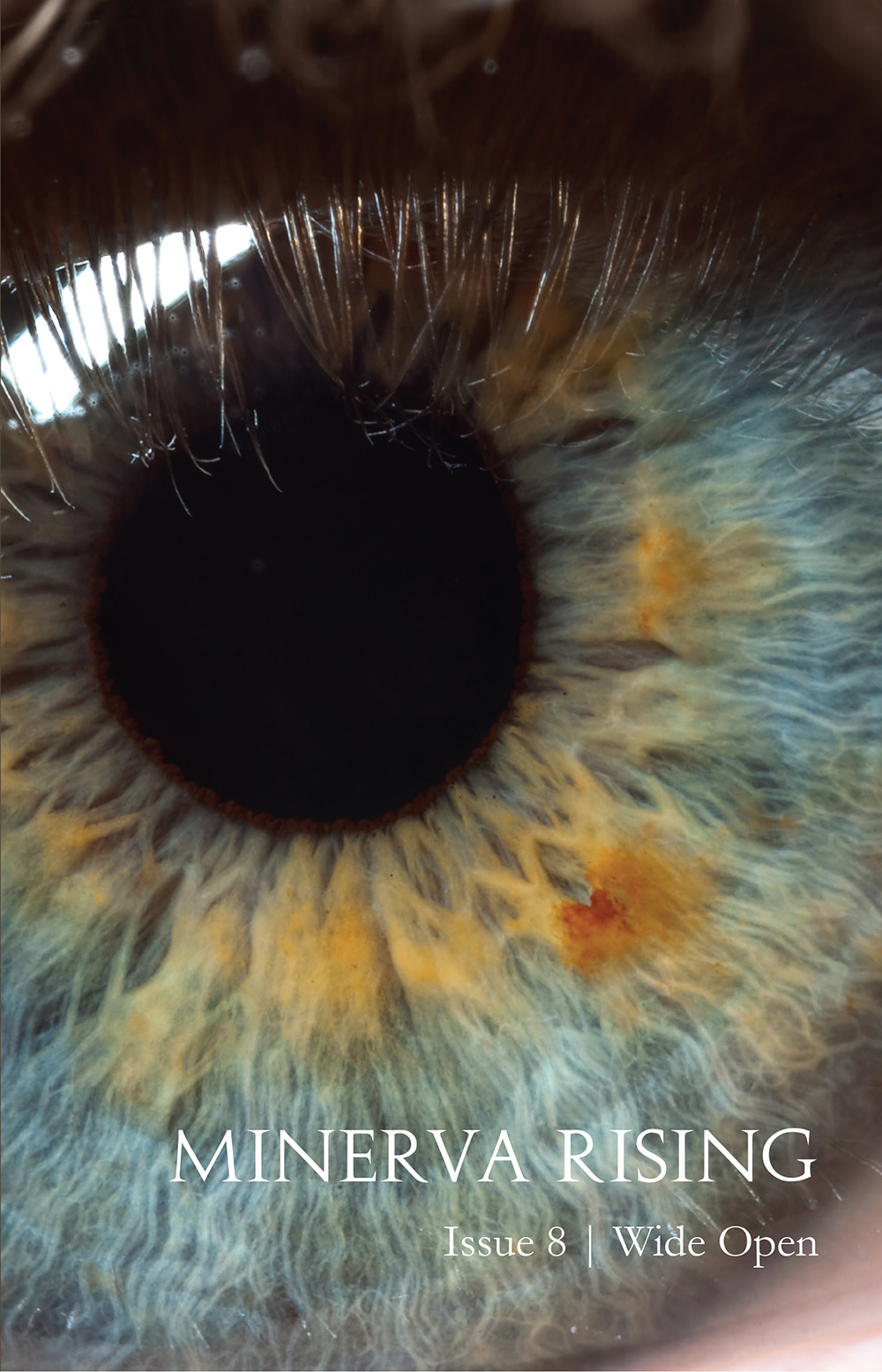
Contributors
We are proud to feature the following amazing contributors in this issue of Minerva Rising. Thank you for being a part of the Minerva community.
Cara Armstrong
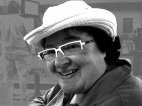 Opening my mind for this issue started with a blackout poem based on J. Patrick Lewis’ essay “Nurseries of Verse” that rhapsodizes about the Childcraft series, the orange gospels that my mother was weaned on. When I realized my love of words was born out of my mother’s, it transformed into thinking about how reading, writing, and books can cast us all wide open.
Opening my mind for this issue started with a blackout poem based on J. Patrick Lewis’ essay “Nurseries of Verse” that rhapsodizes about the Childcraft series, the orange gospels that my mother was weaned on. When I realized my love of words was born out of my mother’s, it transformed into thinking about how reading, writing, and books can cast us all wide open.
Parker Bauman
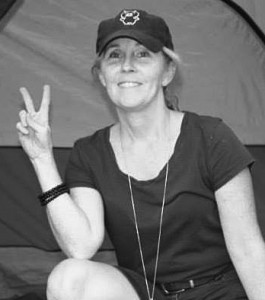 Parker Bauman is a human rights attorney who pens poetry and takes photos to keep her sanity. Her poetry and art has appeared in a variety of print and online journals. Most recently, she has been featured in Connecticut River Review, Big Muddy, Earthen Lamp Journal. She lives in New England, but looks forward to returning to her first love, New Orleans, where she hopes to live a long life of wordsmithery.
Parker Bauman is a human rights attorney who pens poetry and takes photos to keep her sanity. Her poetry and art has appeared in a variety of print and online journals. Most recently, she has been featured in Connecticut River Review, Big Muddy, Earthen Lamp Journal. She lives in New England, but looks forward to returning to her first love, New Orleans, where she hopes to live a long life of wordsmithery.
Cindy Bradley
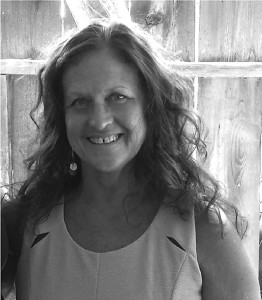 I am a third year student in Fresno State University’s MFA Creative Nonfiction program. This issue’s Wide Open theme is ripe with infinite possibilities, endless connotations that beckon our imaginations to soar across vast emotional landscapes. In my lyrical essay, I’ve attempted to fill this wide open meteoric hole with my musings on loss and what remains, focusing particularly on the elusive, fragmented nature of memory and its effects on the ephemeral nature of identity.
I am a third year student in Fresno State University’s MFA Creative Nonfiction program. This issue’s Wide Open theme is ripe with infinite possibilities, endless connotations that beckon our imaginations to soar across vast emotional landscapes. In my lyrical essay, I’ve attempted to fill this wide open meteoric hole with my musings on loss and what remains, focusing particularly on the elusive, fragmented nature of memory and its effects on the ephemeral nature of identity.
Noel Canin
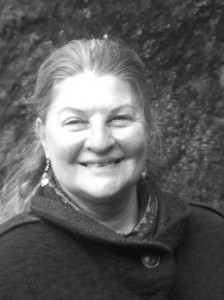 Grief and loss color our lives relentlessly; poetry is a word traveler, a way to share life experience, offer our internal reflections to others – whether we ever meet or not. Poetry is an energetic bridge between us.
Grief and loss color our lives relentlessly; poetry is a word traveler, a way to share life experience, offer our internal reflections to others – whether we ever meet or not. Poetry is an energetic bridge between us.
Sarah Elizabeth Cornejo
When I first saw the theme “Wide Open” I immediately thought of honesty, and being completely wide open in all one’s ugliness and beauty. For that reason, I submitted “Grounds For Divorce” because it is a brutally honest, if somewhat surreal account of a child watching her parent’s marriage fail. Nothing is held back; all the good and the bad are included and left on the page to be seen in their entirety.
Jamie DelSole
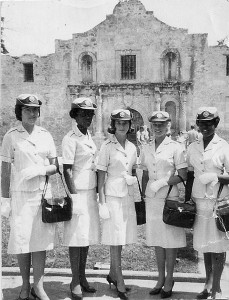 Years ago, at the conclusion of one of the first readings in which I participated, I asked for questions. Someone jokingly asked, “What is the meaning of life?” I answered that that was easy, we each give our own life it’s meaning. The greater question is, ‘What is the meaning of death?’. In sharing my brother’s death, I did not intend to share his life but rather give a voice to the friends and loved ones of suicide victims who often grieve in silence. In the photo, I’m in the center. Airman Jamie DelSole, 1964, in front of the Alamo. Life’s a wonderful trip!
Years ago, at the conclusion of one of the first readings in which I participated, I asked for questions. Someone jokingly asked, “What is the meaning of life?” I answered that that was easy, we each give our own life it’s meaning. The greater question is, ‘What is the meaning of death?’. In sharing my brother’s death, I did not intend to share his life but rather give a voice to the friends and loved ones of suicide victims who often grieve in silence. In the photo, I’m in the center. Airman Jamie DelSole, 1964, in front of the Alamo. Life’s a wonderful trip!
Donna DiCello
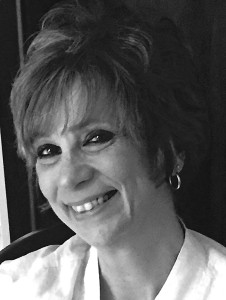 I am a clinical psychologist who has always loved the shape, sound, and meaning of words and believe that poetry gives them their magic. “Wide open” is how I felt in the presence of the subject of this poem – my “first cousin once removed”, Angie lived widely and richly for 106 years and remains my inspiration, even in death. This poem is a love song to her.
I am a clinical psychologist who has always loved the shape, sound, and meaning of words and believe that poetry gives them their magic. “Wide open” is how I felt in the presence of the subject of this poem – my “first cousin once removed”, Angie lived widely and richly for 106 years and remains my inspiration, even in death. This poem is a love song to her.
Eileen Dolan
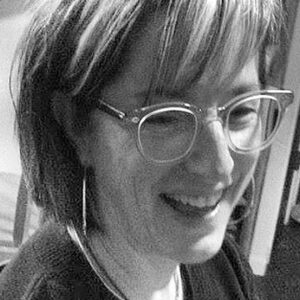 I chose the wide open – to interpretation approach with this poem. Structured in the double helix shape, it represents my suggestion that the body of the poem IS the stuff of DNA. It’s about confidently throwing your heart wide open, walking your prayers, and dancing your passion to create your life. Eileen Dolan lives with her dog, Pi, in a duplex on a creek in South Austin.
I chose the wide open – to interpretation approach with this poem. Structured in the double helix shape, it represents my suggestion that the body of the poem IS the stuff of DNA. It’s about confidently throwing your heart wide open, walking your prayers, and dancing your passion to create your life. Eileen Dolan lives with her dog, Pi, in a duplex on a creek in South Austin.
Shawn Fawson
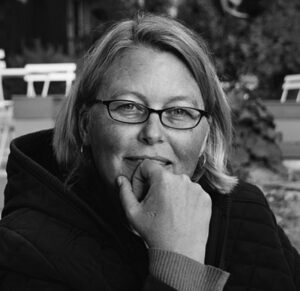 The words “wide open” remind me of anything that sets us free to live. Just to talk about trauma honestly with someone allows us to explore a range of values, experiences, cares, and fears. Part of our human story is to assist one another when life becomes out of reach. To me, “wide open” means that there is always room for love and love can never fail us, even though we don’t always know how best to articulate and embody this love. Yet, in writing and in conversation we can deepen our understanding, revise our approaches, and hope for the best in the future. I hope this comes across in these three very short shorts.
The words “wide open” remind me of anything that sets us free to live. Just to talk about trauma honestly with someone allows us to explore a range of values, experiences, cares, and fears. Part of our human story is to assist one another when life becomes out of reach. To me, “wide open” means that there is always room for love and love can never fail us, even though we don’t always know how best to articulate and embody this love. Yet, in writing and in conversation we can deepen our understanding, revise our approaches, and hope for the best in the future. I hope this comes across in these three very short shorts.
Beatriz F. Fernandez
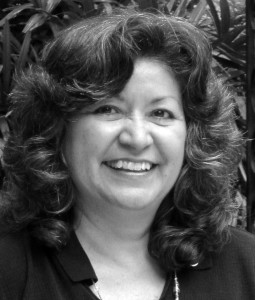 Beatriz F. Fernandez is the author of Shining from a Different Firmament (Finishing Line Press). She has read her poetry on WLRN, South Florida’s NPR news station, and was the grand prize winner of the 2nd Annual Writer’s Digest poetry award. Her poems have appeared in Boston Literary Magazine, Falling Star Magazine (2014 Pushcart Nomination), Label Me Latina/o, Verse Wisconsin, and Writer’s Digest, among others. Contact her at www.beasbooks.blogspot.com or @nebula61.
Beatriz F. Fernandez is the author of Shining from a Different Firmament (Finishing Line Press). She has read her poetry on WLRN, South Florida’s NPR news station, and was the grand prize winner of the 2nd Annual Writer’s Digest poetry award. Her poems have appeared in Boston Literary Magazine, Falling Star Magazine (2014 Pushcart Nomination), Label Me Latina/o, Verse Wisconsin, and Writer’s Digest, among others. Contact her at www.beasbooks.blogspot.com or @nebula61.
Karen K. Lewis
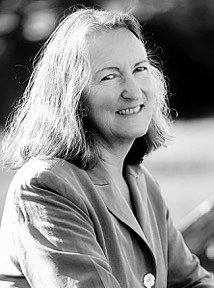 Karen Lewis is interested in the spaces between here and there. Where ocean touches earth. Where sky touches mountain. Where “impossible” touches “maybe” and where the blank page turns into a story. People willing to push the frontiers of imagination and place inspire her. One day on the train, the immigration patrol boarded. They took people away. This story comes from that moment. There are many children like Laguna, whose journeys continue.
Karen Lewis is interested in the spaces between here and there. Where ocean touches earth. Where sky touches mountain. Where “impossible” touches “maybe” and where the blank page turns into a story. People willing to push the frontiers of imagination and place inspire her. One day on the train, the immigration patrol boarded. They took people away. This story comes from that moment. There are many children like Laguna, whose journeys continue.
Kristen MacKenzie
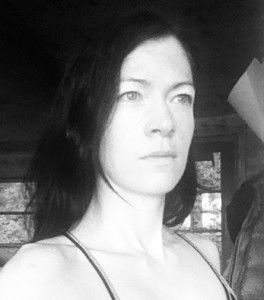 Kristen MacKenzie lives on Vashon Island in a cabin where the shelves are filled with herbs for medicine-making, the floor is open for dancing, and the table faces the ocean, waiting for a writer to pick up the pen. Regarding the theme: “The greatest gifts have arrived as jagged things that cut when I tried to hold on to them. Letting go, I allow myself this wide-open space, not knowing what will fill it.”
Kristen MacKenzie lives on Vashon Island in a cabin where the shelves are filled with herbs for medicine-making, the floor is open for dancing, and the table faces the ocean, waiting for a writer to pick up the pen. Regarding the theme: “The greatest gifts have arrived as jagged things that cut when I tried to hold on to them. Letting go, I allow myself this wide-open space, not knowing what will fill it.”
Lisa McGlaun
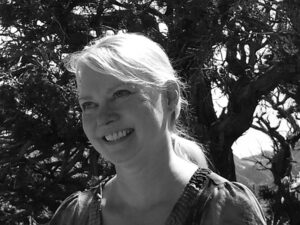 I wrote this piece when I thought I had breast cancer for the second time. It’s cathartic, raw, strange, and emotionally wide open. It’s the closest I’ve come to expressing my cancer experience in words. I’m happy to say my fears were unfounded. I am strong and healthy. My work has appeared in anthologies, magazines, and I’ve won a few contests, here and there. I love the Southwest and currently live near Las Vegas, NV.
I wrote this piece when I thought I had breast cancer for the second time. It’s cathartic, raw, strange, and emotionally wide open. It’s the closest I’ve come to expressing my cancer experience in words. I’m happy to say my fears were unfounded. I am strong and healthy. My work has appeared in anthologies, magazines, and I’ve won a few contests, here and there. I love the Southwest and currently live near Las Vegas, NV.
Wendy Merrick Burbank
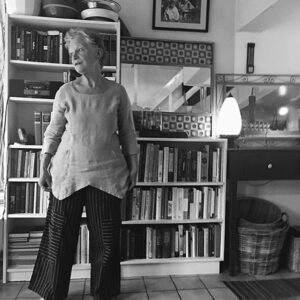 My writing has been published in journals, performed on the Conflict of Interest Theater Company Podcast, and is forthcoming in an anthology. I’ve been a featured writer at venues in New York State. I live and write in the Helderberg Mountains and work on a large farm in the Schoharie Valley. “All the Lost” is about how memory spreads itself over the “wide open” landscape of consciousness, shuttling between waking life and dreams.
My writing has been published in journals, performed on the Conflict of Interest Theater Company Podcast, and is forthcoming in an anthology. I’ve been a featured writer at venues in New York State. I live and write in the Helderberg Mountains and work on a large farm in the Schoharie Valley. “All the Lost” is about how memory spreads itself over the “wide open” landscape of consciousness, shuttling between waking life and dreams.
Dena Moes
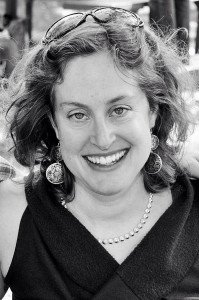 Exploring ancient sacred places can blow one’s heart wide open. The wide open feel of railway travel, of discovering new places, of being an anonymous foreigner in a far-away land, all lend themselves to personal transformation. Dena Moes, midwife and mother with a gypsy soul, describes such an experience in Waking Up in Varanasi. After her solo trip, Dena returned to India for almost a year with her husband and two teen daughters. She is currently writing a book about their adventures backpacking through India on spiritual pilgrimmage as a family.
Exploring ancient sacred places can blow one’s heart wide open. The wide open feel of railway travel, of discovering new places, of being an anonymous foreigner in a far-away land, all lend themselves to personal transformation. Dena Moes, midwife and mother with a gypsy soul, describes such an experience in Waking Up in Varanasi. After her solo trip, Dena returned to India for almost a year with her husband and two teen daughters. She is currently writing a book about their adventures backpacking through India on spiritual pilgrimmage as a family.
Amy Penne
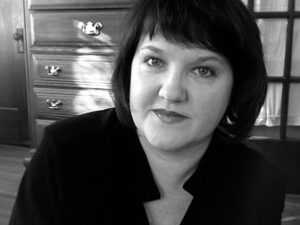 Stations of the Cross uses the metaphor of Jesus’ final moments to underscore collective journeying. This lyrical memoir essay seeks out moments of grace and courage in the unfortunate choices made by a mother. We carry each other’s burdens and crosses. But how far? When can we put those crosses back down?
Stations of the Cross uses the metaphor of Jesus’ final moments to underscore collective journeying. This lyrical memoir essay seeks out moments of grace and courage in the unfortunate choices made by a mother. We carry each other’s burdens and crosses. But how far? When can we put those crosses back down?
